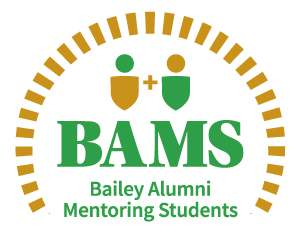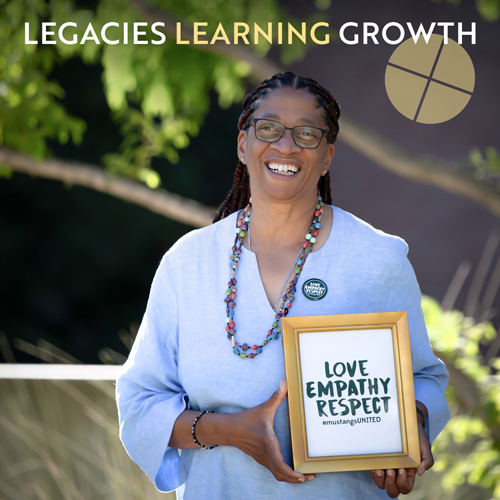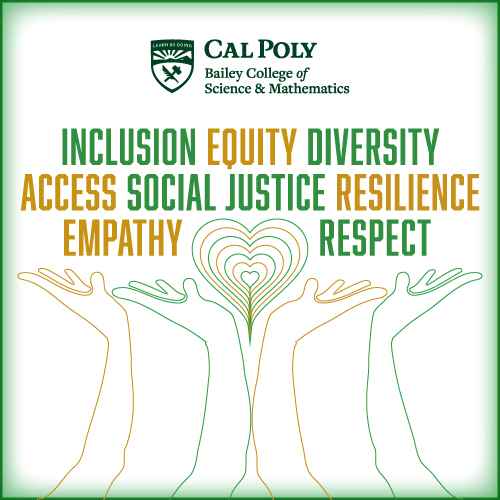Educating Well-Prepared Educators
 Liberal studies students Madelyn Grace Schenk (front left), Annika Marie Francis (front right), Shanterria Allen (back left) and Yazmin Marie Grizzanti (back right) identify and compare components of formative and summative assessments as part of a sorting activity in an EDUC 427 course — Theories, Methods, and Assessment of First and Second Language Acquisition in Schools. Students apply their learning working with K-12 students in the Summer Experience Program for the San Luis Coastal Unified School District. PHOTO BY SARAH DAVENPORT
Liberal studies students Madelyn Grace Schenk (front left), Annika Marie Francis (front right), Shanterria Allen (back left) and Yazmin Marie Grizzanti (back right) identify and compare components of formative and summative assessments as part of a sorting activity in an EDUC 427 course — Theories, Methods, and Assessment of First and Second Language Acquisition in Schools. Students apply their learning working with K-12 students in the Summer Experience Program for the San Luis Coastal Unified School District. PHOTO BY SARAH DAVENPORT
LIBERAL STUDIES AND SCHOOL OF EDUCATION PROGRAMS PRODUCE READY DAY ONE TEACHERS
OCTOBER 2023
by nick wilson
There are many challenges that get in the way of learning for a modern-day K-12 teacher — social media distractions, rapidly changing technology, bullying, socioeconomic disparity and more. But Cal Poly liberal studies alumni enter the profession with dedication, skill and enthusiasm to inspire future generations, program leaders say. Cal Poly’s Liberal Studies Department celebrated its 50th anniversary this year, honoring a rich history of successful teacher education.
“Teachers who graduate from Cal Poly's liberal studies and teaching credential programs are snapped up in a heartbeat all across the state for jobs because we have such a good reputation,” said liberal studies faculty member Katie Paulding. “Our graduates are going to be as ready as possible on the first day of teaching.”
Liberal Studies moved into the College of Science and Mathematics in 2009, with an emphasis on teaching STEM (science, technology, engineering and mathematics), in addition to developing a strong general education skill set.
The program’s STEM course offerings include Biology of Plants and Animals, Mathematics for Elementary Teaching, and Atoms and Molecules. The curriculum is designed to address K-12 achievement gaps and prepare new instructors in a variety of subject matter areas, including STEM, in order to meet the demands of teaching.
“We have been training the best prepared teachers out there,” said Dean Wendt, dean of the Bailey College of Science and Mathematics. “When I meet with county superintendents of schools, they say, ‘We love Cal Poly graduates and whenever they apply, we’re so excited. They are incredible teachers and stay in the profession.’”
Paulding (Liberal Studies, ’04) said the program encourages building rapport with students rather than implementing a stifling or punitive approach.
After earning her degree, Paulding served as a middle school math teacher in Santa Maria for 10 years, and now teaches Cal Poly students how to teach. K-12 instructors help students amid family dysfunction, cyberbullying and misinformation prevalent in social discourse, she said. “Students should feel safe; building trust and rapport encourages students to work, and that’s when learning happens,” Paulding said.
 Katie Paulding (right) listens to graduate student Jaime Avila Esparza in the EDUC 427 class taught by Paulding. PHOTO BY SARAH DAVENPORT
Katie Paulding (right) listens to graduate student Jaime Avila Esparza in the EDUC 427 class taught by Paulding. PHOTO BY SARAH DAVENPORT
Amid changing technology, artificial intelligence (AI) platforms present new challenges for teachers. “We can't be afraid of the technology and avoid it,” Paulding said. “We can ask students ‘Why is this paper written by AI not exactly what you would write yourself?’ We can use it as a tool.”
Liberal studies students learn to manage a classroom through both course lessons and practice in finding their own approach.“There’s no one rule that everybody should follow,” said Lola Berber-Jimenez, the department chair of the past 13 years who recently retired.
“We have multiple classes where our liberal studies students either observe professional teachers or practice teaching themselves and get feedback,” Paulding said. “I can’t tell you how important that is to be ready when they start their careers. Cal Poly does that so well.”
Fourth-year liberal studies student and Frost Research Scholar Marisa Ritchie has participated in Cal Poly’s Preschool Learning Lab program offering hands-on STEM instruction to younger children. She also volunteers alongside a mentor faculty member at Bishop’s Peak Elementary School. Ritchie chose her major because she likes working with children and gravitated to the Learn by Doing curriculum.
 The Cal Poly classes are really focused on methods of accommodating individual learning styles,” Ritchie said. “I’ve had such amazing professors who have played a very vital role in helping me develop the skills to become a teacher.”
The Cal Poly classes are really focused on methods of accommodating individual learning styles,” Ritchie said. “I’ve had such amazing professors who have played a very vital role in helping me develop the skills to become a teacher.”
The Cal Poly classes are really focused on methods of accommodating individual learning styles. I’ve had such amazing professors who have played a very vital role in helping me develop the skills to become a teacher.
Marisa Ritchie
Liberal arts student and Frost Research Scholar
Despite its many challenges, the profession offers invaluable rewards and liberal studies is the “most important major at Cal Poly,” said new Liberal Studies Department Chair Seth Bush.
Bush said, “Teaching represents everything that inspires young people to advance their education and lives. Without my fifth-grade teacher, Miss Katzenstein, and others who supported me along my path, I don’t know if I’d be where I am today. She created the space for us to grow, and I started seeing myself as a good student.”
Kevin Taylor, recently retired director of Cal Poly’s School of Education, called liberal studies “the lifeblood” of Cal Poly’s multiple subject credential program.
“We've been partnered with liberal studies since its inception to ensure that we provide a first-class credential experience to our graduates who want to teach. Liberal studies alumni are some of our best, most talented teachers.”




